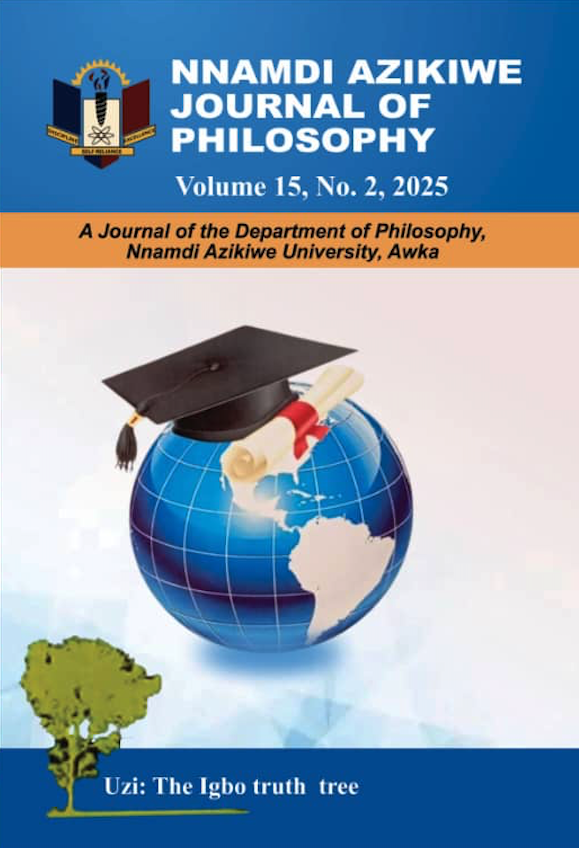THE INTERPLAY OF KNOWLEDGE AND EXISTENCE IN GABRIEL MARCEL’S PHENOMENOLOGICAL THOUGHT AND ITS IMPLICATION ON INTERCULTURAL VALUES IN THE AGE OF ARTIFICIAL INTELLIGENCE
Abstract
The epistemology of Gabriel Marcel is rooted in his existentialist philosophy. Existentialism is a school of thought that emphasizes that human beings are free and responsible for all their thoughts, words, and actions in this meaningless world. It is human beings, according to the existentialists, who define the world and choose by themselves what they want to be. Marcel emphasizes the importance of lived experience and subjective reflection over the abstract reasoning. He rejects a purely objective, detached view of knowledge arguing that knowledge is ultimately tied to personal involvement and then ‘mystery of being’. His approach prioritizes participation and inter-subjectivity as crucial elements of understanding the world and ourselves. This interplay of knowledge cuts across all cultures of the world since no culture possesses or has monopoly of knowledge. Each culture can therefore learn and understand the values of other cultures through shared experience. However, in this age of Artificial Intelligence (AI), many civilized cultures impose their cultural values, including languages on the less civilized or minor cultures and hardly learn from them. This brings about serious issues when it comes to shared experience. This paper is therefore an attempt to marry Marcel’s epistemology of lived experience and interplay of knowledge with a view to tackling this issue of total marginalization of the values of other cultures; taking them to be inferior to those of developed and civilized ones. This paper therefore adopted a qualitative study where data was got from books, journals, newspapers and the internet. The paper also employed the expository, evaluative and analytic methods of philosophical study. The expository methods established Marcel’s interplay of knowledge and existence; the evaluative method offered a critique of his position, while the analytic method presented the effects of his epistemology on the current issue of AI and intercultural values. By evaluating and analyzing Marcel’s epistemology of interplay of knowledge and existence, this paper found out that each culture has knowledge embedded in its cultural values and as such each culture should respect and learn from the others because each of them has something new the other(s) can learn from it.


